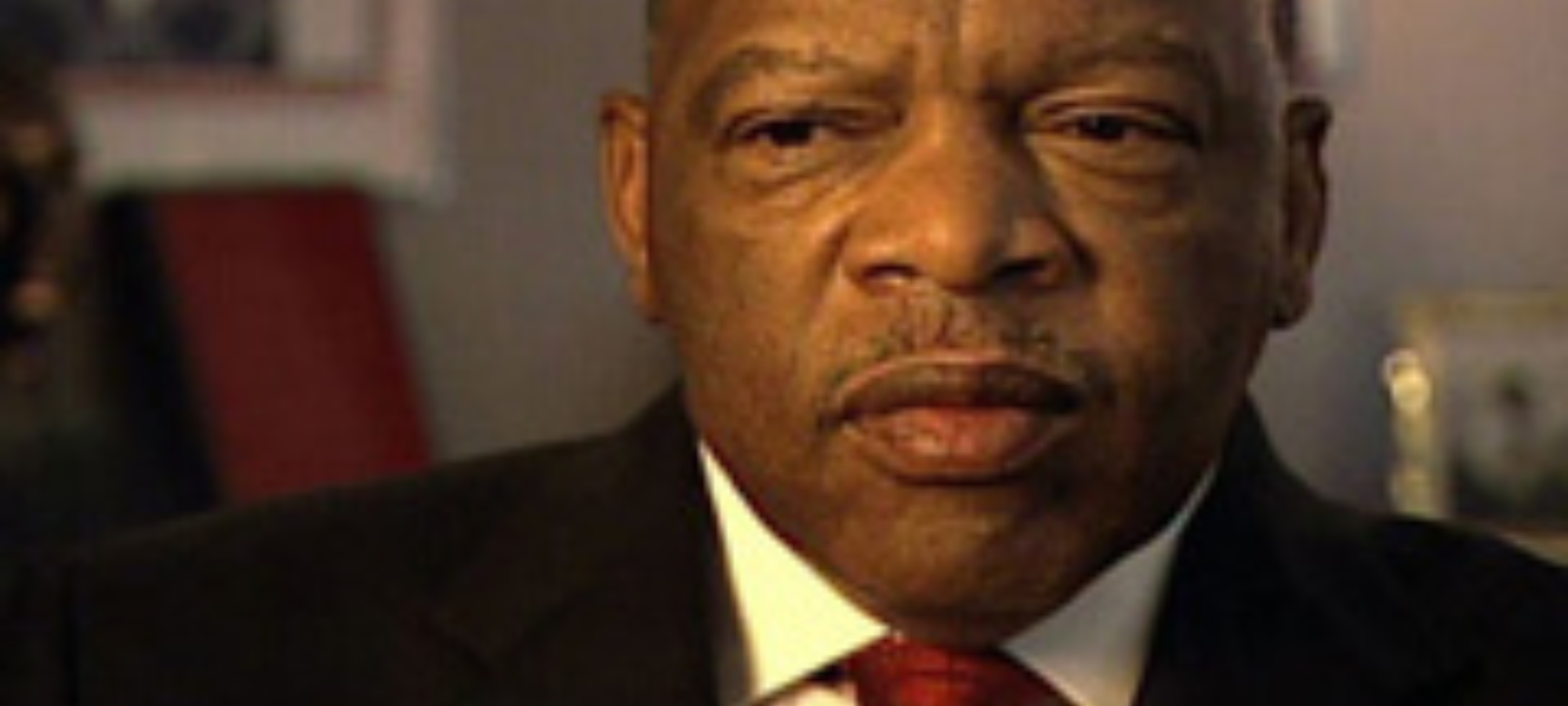Read more of Kim Lawton’s interview with Rep. John Lewis about religion and the civil rights movement:
What spiritual legacy did the civil rights movement give to the United States?
The civil rights movement of the ’60s imbues the American community with a spirit that is still with us today. Many of us that got caught up and involved in the civil rights movement saw our involvement as an extension of our faith. We would sing songs … in Mississippi, in Alabama, in Georgia, in little churches: “I’m gonna do what the spirit said do.” If the spirit said sit in, if the spirit said march, if the spirit said walk, if the spirit said picket — “I’m gonna do what the spirit said do.” Without our faith, we wouldn’t have been able to succeed. On many occasions, before we’d go out on a sit-in, before we went on the freedom ride, before we marched from Selma to Montgomery, we would sing a song or say a prayer. Without our faith, without the spirit and spiritual bearings and underpinning, we would not have been so successful. Without prayer, without faith in the Almighty, the civil rights movement would have been like a bird without wings.
On many occasions, when we had been beaten, arrested, in jail, you had to call upon something, some force, some power much larger, much greater, and much more powerful. In my estimation, the civil rights movement was a religious phenomenon. When we’d go out to sit in or go out to march, I felt, and I really believe, there was a force in front of us and a force behind us, ’cause sometimes you didn’t know what to do. You didn’t know what to say, you didn’t know how you were going to make it through the day or through the night. But somehow and some way, you believed — you had faith — that it all was going to be all right.
You talk about the music of the movement. I’ve heard recordings from some of those meetings, where people took simple Sunday school songs and made them relevant to what was happening. What was the power of that music?
On many occasions, people would be so inspired, so moved … they would start singing some of the gospel songs or some hymn of the church. And they would improvise; they would make it current, or make it so powerful, that you knew somehow and some way that you had to go. You had to go and sit in. You had to go and march, because it was the power of the message, of the words of a song — the beat, the rhythm. And on some occasions, it was just like being in church on a Sunday morning. It was like being at a prayer meeting. And whether it was a sit-in, or whether it was on the freedom ride, or the march from Selma to Montgomery, I felt on many occasions like it was a very deep religious experience.
Are you concerned that the religious aspects of the movement are being lost the further we get from those days?
I’m deeply concerned that many people today fail to recognize that the movement was built on deep-seated religious convictions, and the movement grew out of a sense of faith — faith in God and faith in one’s fellow human beings. From time to time, I make a point, trying to take people back, and especially young people, and those of us not so young, back to the roots of the movement. During those early days, we didn’t study the Constitution, the Supreme Court decision of 1954. We studied the great religions of the world. We discussed and debated the teachings of the great teacher. And we would ask questions about what would Jesus do. In preparing for the sit-ins, we felt that the message was one of love — the message of love in action: don’t hate. If someone hits you, don’t strike back. Just turn the other side. Be prepared to forgive. That’s not anything any Constitution say anything about forgiveness. It is straight from the Scripture: reconciliation. So the movement, the early foundation, the early teaching of the movement was based on the Scripture, the teaching of Jesus, the teaching of Gandhi and others. You have to remind people over and over again that some of us saw our involvement in the civil rights movement as an extension of our faith.
Were there tensions between those of faith and those in the movement who were social progressives but perhaps didn’t have any religious beliefs? Were there tensions between those two wings?
At times, you had what I would call a schism, maybe a small conflict between those who said, “This is the right thing to do. We do it because it is not in keeping with the Constitution; it is not in keeping with the Declaration of Independence, [with] our Bill of Rights.” But then others were saying, “I’m doing it, I’m standing up because [of] my faith, my belief in God the Father, in the Holy Spirit, in Jesus Christ, or in the teaching of all the great religions of the world, that this is the thing to do.”
But those tensions didn’t hinder the movement?
These tensions between sort of the social and the spiritual, it didn’t hinder. I think people felt the movement was so right and so necessary that we could not let the tension between the social and the spiritual interfere with the success of the movement.



 As a nation, if we care for the Beloved Community, we must move our feet, our hands, our hearts, our resources to build and not tear down, to reconcile and not to divide, to love and not to hate.
As a nation, if we care for the Beloved Community, we must move our feet, our hands, our hearts, our resources to build and not tear down, to reconcile and not to divide, to love and not to hate.